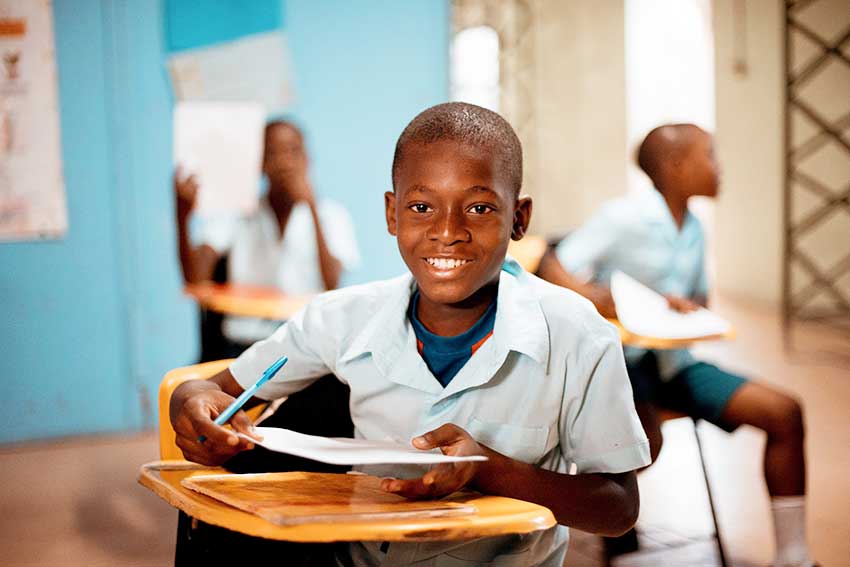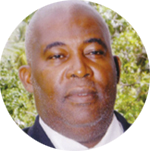

WELCOME students to another week in the Open School for the final term for the academic or school year 2022 to 2023. The school is open to parents, guardians, teachers, students and members of the public. It is my hope that students will acquire knowledge and skills on how a sense of safety shapes student learning and behaviour.
I want to apologise for the prolonged closure of the open school. That was due to unforeseen circumstances.
Today’s lesson focusses on “How a Sense of Safety Shapes Student Learning and Behaviour.”
The improved performance of learning depends on several key factors. We may already know that good health, regularity and punctuality, having school requirements such as textbooks, and effective teaching are major factors. However, a sense of safety on the part of students is also a major factor. Or it may very well be the major factor.
It is important for you to understand that ‘Home’ is the ‘First school’. This is where the child begins the ‘Formative’ years.
Now, what are the formative years? Intensive educational research on the brain indicates that from birth to three years are the most important years in the child’s development. What happens to a child in these years can affect his or her physical and mental development and his or her performance in school in later years.
Now it is very important to understand that during these early years, parents or guardians must be warm, loving and responsive. Children should always be given ‘a listening ear”.
Many readers may laugh when I say that during the time the child is developing in the womb, he or she is learning. In the womb, the child could respond or reply to neurological stimuli.
Now what is meant by neurological or neurodevelopment is a term which refers to the brain’s development of neurological pathways that influence performance or functioning of an unborn child and into the first three years of birth. Neurodevelopment influences the functioning of the intellect, reading ability, social skills, memory, attention or focus skills.
As early as the formative years, students can develop neuro conceptions. Now ‘neuroception’ is a term which describes how the children and students can scan the environment in which they are to distinguish whether situations or people are safe, dangerous, or life threatening.
I am sure that you will now begin to understand why the government of St. Lucia will provide free prenatal or antennal care to pregnant women.
Indeed, coming back to the matter of safety, it must be fully grasped that the more a child or student feels safe, the more his or her performance in school will improve and the better his or her good behaviour will improve.
During my 42 years in the teaching service in St. Lucia, I have met scores of students who told me that they are not or hardly given a listening ear at home. In fact, a lot of their questions go unanswered. Really, many parents do not like children or students to question them. Maria Montessori, a philosopher and educationist, continues to point out that fact!
Earlier in this article I pointed out that children and students have the ability to scan their environment and determine whether they are loved; that there is a genuine sense of care and concern for them.
I must admit that single parent households have to deal with problems of their own. However, those problems should not stand in the way of loving and showing care and concern for their children.
Indeed, students who feel safe at home when their parent or parents listen to them, show genuine love and caring, do not show aggression towards them and give them opportunities to ask questions. Responding to their questions will give parents and teachers their best performance in school and at home. They will feel comfortable and ‘sage’ at home and at school.
Those students will feel connected to home and school by feeling a sense of belonging.
For many children and students, a deep sense of rejection and judgement will drive them into great lengths in order to avoid making mistakes in the classroom. Few things in life are more threatening to our survival, our brain than public rejection. And that is why many children do not speak out in class, particularly in the whole class situations or in public. Even adults fear speaking out in public for reason of rejection.
When children do not perform in school, or behave badly, even under the ideal conditions of teaching and learning, one has to look seriously at the home for answers. Unfortunately, many students may perceive a classroom as similarly threatening. It may not be the classroom teacher who is responsible but other students. Bullying is a common occurrence in our schools today.
Very recently, the matter of bullying came to our attention in a news clip on television. I was very alert to hear the child’s mother say that he suddenly complains of not wanting to go to school. That can seriously affect the performance of any student. And so, parents are to look out carefully for evidence of bullying to their children, since that can affect their performance in school.
Now two questions for you. (1) In your own words, explain the term ‘neuroception’. Give two reasons why children or students may be reluctant to go to school.




![Simón Bolívar - Liberator of the Americas [Photo credit: Venezuelan Embassy]](https://thevoiceslu.com/wp-content/uploads/2025/12/Simon-Bolivar-feat-2-380x250.jpg)



